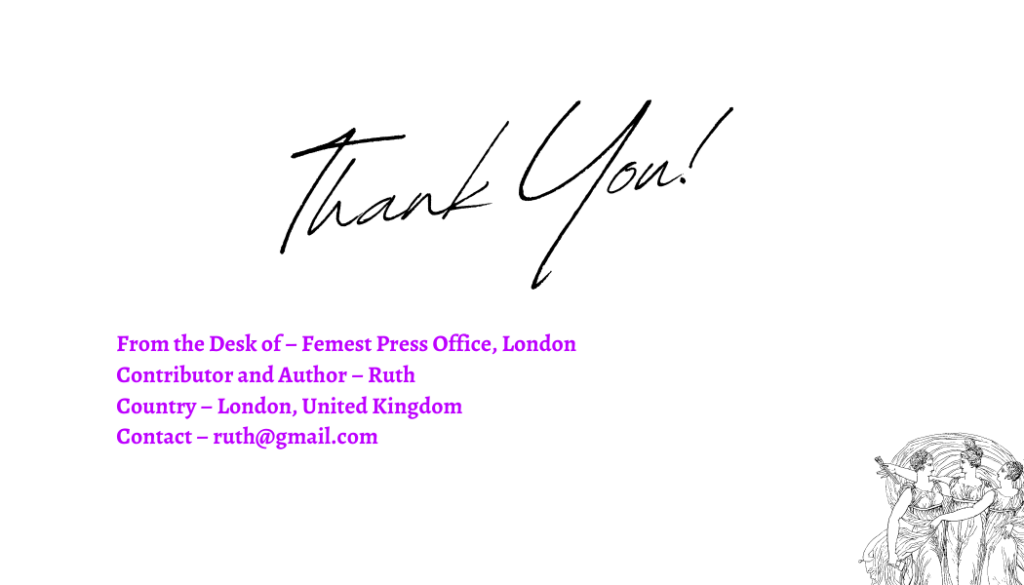Introduction: What is Gender Equality in the Workplace?
One of the things I was trying to raise with this discussion of gender equality was whether feminism is about equality between women and men or whether it is about equality for women only (e.g., it’s about “full” women, not just “feminine” ones).
What I found surprising was how little attention this issue gets in the media and among some feminists (and I’m not talking about those who are simply anti-feminist but rather those who subscribe to a particular brand of feminism).

The problem is twofold: first, the media will sometimes misreport facts (e.g., they say that tall women make more money than short ones), while other times, they don’t report them at all (e.g., they don’t mention that tall women are more likely to be sexually harassed than short ones).
Second, there seems to be an assumption that if a topic would not mention enough, it isn’t worth mentioning.
So here we have a discussion on gender equality between women and men where there seems to be no mention of anything else: there isn’t even any mention of what other groups do well or poorly.
The Importance of Achieving Gender Equality in the Workplace
If you want to understand the importance of gender equality in the workplace, start by reading this article from our research. Topics researched included:
Should women be allowed to take responsibility for their own health?
Should women have equal access to companies’ health plans?
Should men and women be allowed to decide what they do with their bodies?
The research argues that feminism is not about equality between genders but rather equality between genders in society. The purpose of feminism is not equality between genders but rather a guarantee of gender-neutralism.
This is because if you want to promote gender neutrality in society, you need an organisation that is neither too male nor too female. One should be able to find a job without being subjected to overt misogyny. Ideally, we need a society where “unconscious bias” and “sensitivity” are treated as equally legitimate forms of discrimination (they aren’t). In other words, no one should be treated differently just because they are different from anyone else (preferably anonymously).

But this does not mean that all biases are equally wrong — simply that no one should be treated differently on the basis of them (we know what we mean by “different” here). This may seem like an overgeneralization, but think about how many different forms of discrimination there are against gay people and lesbians: employers not hiring them; landlords refusing housing projects; banks refusing loans; insurance companies denying coverage; schools refusing teachers’ jobs; etc.
All these forms of discrimination have some sort of negative effect on gays and lesbians: they may or may not get hired, they may or may not get housing projects built (which can affect social mobility), and they may or may not get loans approved by bank or insurance companies, etc. We could say that almost any form of discrimination negatively affects gays and lesbians but still call it “equal opportunity” discrimination.
Of course, this does not mean that every form of discrimination is non-existent — no human organization can make such generalizations like this — but overall, it does mean that if you want something done “properly”, you need it done in a way which maximizes its positive effects without harming its adverse effects.
How Liberal feminism or Gender Inequality Persists in the Workplace
In the past few years, there has been a lot of discussion around gender and workplace equality. With some notable exceptions (in education, for example), much of the discourse has focused on women as victims rather than as contributors to the workplace.
Though many corporations have made strides in recent years, we should not forget that women still make up only about half of all employees in the United States. In addition, we know that men and women are similarly affected by chronic stress and tend to face significant differences in their ability to cope with it.
So, what is the importance of gender equality in the workplace? Why is it so important to challenge gender inequality?
First, let’s address what gender inequality is: it’s an imbalance that exists between men and women. The terms “male” and “female” are used in this context, but they can also refer to a particular role or characteristic that makes a person — or a group of people — male or female. In other words, gender does not exist on a single dimension but on multiple sizes (e.g., facial features).
Second, when we talk about equality between men and women in the workplace, we are talking about more than just being treated equally before the law (which I believe most people agree is already quite good). We also don’t mean equal pay or equal treatment under employment law; we mean equality of power: who has authority over others (men over women) and how those authorities are used (men over women) — versus who gets to exercise control over others (women over men). And this is what allows us to talk about inter-gender equality in an authentic way: it doesn’t mean using one language or building one product, or having one style of work; instead, it means treating everyone equally regardless of their sex and getting rid of any remnants of sexism present therein.
Third, when we talk about gender equality at work, we often overlook how much power remains elsewhere: employers can still decide whether someone will receive raises based on their sex; where they come from within organizations; who they will work with; when they start to work; how much autonomy they will get; etc., all things which ultimately affect whether their job fits with who they are as individuals.
Many people want gender equality at work but don’t realize how much change could be done along these lines, even if such policies exist today.
The Positive Impact of Gender Equality in the WorkplaceThe Positive Impact of Gender Equality in the Workplace
There’s one problem: when you call yourself a feminist, you must also call yourself a liberal. If you are not a liberal, you are against women’s rights and against equality.
But if you are a liberal feminist — and many feminists are both — then your support for women’s rights is an endorsement of equality between men and women. To be fair to liberals, they do have an interest in gender equality as well as other groups, like equal pay and equal opportunity; but they also have an interest in supporting the kind of society where everyone has options rather than just some people.
These interests can coexist, but they cannot coexist under the same banner or with the same priorities. If liberals would get over their egalitarianism and embrace diversity instead at work (e.g., not having anyone with any relation to the Tea Party on your team), then they could support gender-balanced teams and promote gender-balanced products without being hypocritical about it (and at least show some respect for those who disagree).
Conclusion: Why Gender Equality in the Workplace Matters
Even having said all of this, there are some things we can do today to make sure that future generations can enjoy better workplace conditions for themselves and their children — even if only for themselves:
A lot of people who write about feminism don’t seem to realize how privileged they are as men — not just because they were born white but because they were raised by parents who weren’t concerned about raising boys but more about raising girls (which may be true for some of them but not for all).
Men get more opportunities than women; men get more access to education; men get more access to career paths; men get more access to professional associations; men get more access to political systems; men get more access to legal procedures, etc.
Their reality is different from ours, which means they have come up against various challenges when trying to make changes in society (including on the job). This doesn’t mean they don’t deserve equal rights too. But it also means we need them now so future generations can enjoy better working conditions. Learn To Listen To Women Too On The Job, It should be no surprise that many feminists are female managers … so naturally, we should listen to them too! Unfortunately, this is easier said than done.


It’s a truly interesting and helpful piece of information. I’m glad you just shared this useful knowledge with us. Please keep us informed in this manner. I appreciate you sharing.
Very educative post! I truly enjoyed reading this post, therefore I’ll be coming back to read more posts in the future.
Thanks for the post, the messages were very valuable and inspiring. We all need 50/50 working enviroment.It is more advantages to have a mixed group of profesionals. I love this community. Keep on empowering women.
Nice post. Women should receive the same pay as men if they perform the same duties.
Women invest the same amount of effort that men do in their education, personal development, and growth. Nobody “discounted” us when we we were pursuing our degrees. Why should our salaries differ based on our gender?